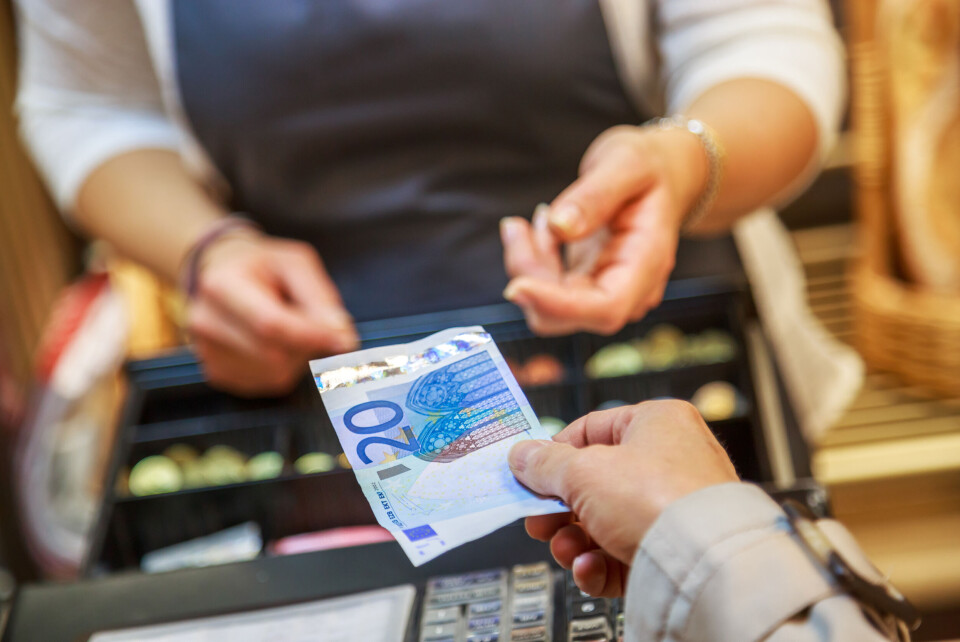-
Pistes closed, confinement orders: Alpine resorts deal with avalanche risk
Increased snowfall this weekend may cause further closures as busy school holiday season continues
-
Former French Interior Minister announces 2027 presidential candidacy
Bruno Retailleau recently asked prefectures to be tough on immigration
-
Ryanair axes Dublin-Rodez route but London connection retained
“We are disappointed but had no say in decision” say airport authorities
Recap: France's nine measures to boost residents' spending power
From help with food costs to increases in social benefits and ending the TV licence, the government has announced a raft of new measures in addition to those already in place

The government in France has pledged a series of measures worth €25billion in total in a bid to improve public purchasing power amid rising fuel, food and other costs.
These include:
- Food payment for nine million homes
- Continued 18-cents/litre rebate per litre on fuel
- Cap on the price of gas
It comes after the government issued €100 inflation cheques and capped electricity price rises at 4% during President Emmanuel Macron’s previous term.
Prices are continuing to rise as inflation soars (at 5.8% over a year in June) with the state statistics bureau INSEE now predicting that it could reach 6.5 - 7% come autumn.
Some of these measures are already in place, others are subject to a proposed law which is set for debate in parliament in the coming weeks. If passed, some measures could be applied retrospectively.
Read more: Inflation in France expected to reach 6.8% by end of 2022
Measures already in place:
1. Fuel discount of 18 cents per litre
This has been in force at petrol station pumps since April 1 but, despite the rebate, prices have still risen above €2 per litre. The aid had been previously set to run until the end of July, then until the end of August, and could now be extended until the end of December 2022.
Read more: France may extend 18-cent-a-litre fuel discount until end of 2022
2. Cap on electricity prices
The limit was set at 4% in February. It had been reported that bills would increase by up to 8% in 2023 to make up for the money lost in maintaining the measure this year, but Economy Minister Bruno Le Maire has said: “There will be no ‘catch up’ in 2023.”
Read more: French energy bill cap will not cause 2023 price rise, says minister
3. Gas price freeze
Prices are frozen until December 31, 2022, instead of the initially-planned June 30, Prime Minister Elisabeth Borne has confirmed.
Read more: France extends energy price cap measure to the end of 2022
Read more: French energy companies call for immediate action to cut back on usage
Measures planned but yet to be passed by parliament:
4. Food price assistance of €100
Nine million of France’s least-well-off households will receive this aid, plus €50 for each child in the home, government spokesperson Olivia Gregoire has announced. It will be paid directly into the bank accounts of those who are eligible in September 2022 automatically.
It will be given to those receiving benefits such as the back-to-work support called the revenu de solidarité active (RSA), disability benefits called the allocation adultes handicapés (AAH), the pension top-up support commonly called the minimum vieillesse (ASPA) and the housing support aidepersonnalisée au logement (APL).
This is part of a proposed law which has not yet been voted through parliament.
Read more: Spending power in France: general inflation aid to replace food cheque
5. Rent control and housing aid
The government is aiming to cap rent price increases at 3.5% for a one-year period, French finance minister Bruno Le Maire confirmed on June 27. This will be done by limiting the indice de référence des loyers (rent reference index), a scale to which rent increases are calibrated.
Mr Le Maire, who is calling the price cap a “bouclier loyer” (rent shield), said that without intervention rent prices could rise by “five to six percent”.
The government is also aiming to increase housing aids, known as aides personnalisées au logement (APL), by 3.5% from July 1, subject to parliamentary approval.
6. Increase in French pensions
Basic French retirement pensions will be increased by 4% from July 1, if the government proposal is adopted in parliament. For example, for a pension of €1,200 per month, the increase will be €45 per month. The first increase will be paid in August, subject to parliamentary approval.
Read more: 17 million pensioners in France to see basic pensions boosted by 4%
7. Increase in social benefits
Social benefits will be increased by 4% from July 1 if this move is approved by Parliament – approval will not come before July 1 but the increased payments will most likely be backdated to that point, if the law is adopted. These benefits include the RSA, AAH, ASI, AV and ASS. Family allowances will increase by 3.5%. These increases will be included in the ‘purchasing power’ bill expected in early July.
8. TV licence to be scrapped
The redevance audiovisuelle previously contributed to the financing of France Télévisions, Radio France and the INA. Its abolition, which is to be put to Parliament now that the legislative elections are over, will represent a saving of €138 per year for 23 million households.
Read more: French TV and radio stations strike over plan to end licence fee
9. Civil servants' salaries to rise
The re-evaluation of salaries from July 1 will see salaries rise by 3.5%, the first time there has been an increase in five years. The first increase will be paid in August, for work in July, if approved by Parliament.
This is set to cost the state €7.5billion but unions say it is not enough.
























